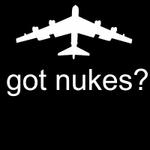Schwarze Löcher
13.03.2005 um 10:12
Taiwan independence: necessary, beyond campaign rhetoric
Support for Taiwan independence is an inescapable conclusion of logical analysis
John Kusumi
2/26/2004
Related Articles
• A crucial moment is approaching
• China lacks the right to interfere in democracy
• The free world's opportunity - The Taiwan referendum
• Referendum displays French gall
• New year to mark new era: Chen
• What really is China's bottom line?
• Landmark genocide lawsuit against Jiang Zemin on firm ground, says appeal filed today
• PRC agenda in Pacific starts with unification
• China uses investors as chips in the Strait game
• China planted Hong Kong spy story
Recently, Western leaders including George Bush, Howard Dean, and Jacques Chirac have shown a lack of comprehension about Taiwan, as each came out with an expedient curtsey to the Communist regime of Beijing, China. With complexities and wrinkles that are unrivaled among other pieces of real estate in our world, the status of Taiwan can be a real head scratcher among questions.
Taiwan is thought to live in a status quo, and that is thought to be the middle ground between two extremes -- those being "reunification" with China, and "independence" from China. The status quo also includes a few facts on the ground. I care to treat them briefly, and not at length, but here are three: (1.) The PRC has never had effective control of Taiwan. Taiwan has enjoyed de facto independence for 55 years. (2.) The term "reunify" is a misnomer with the PRC. The two entities were never unified in the first place. (3.) Taiwan has no need to declare "independence" from the PRC, for the same reason. Never having been unified with the PRC, Taiwan need not separate from an entity of which it is not a part.
The status quo also includes bluster, bellicose rhetoric, some 500 missiles that China has positioned and aimed at Taiwan, and the legacies of Mao's one-China principle and Kissinger's one-China policy.
As reported and as found in polling, sentiments of Taiwan's people have been moving away from "reunification" and towards "independence." Present circumstances make "reunification" impossible, and that option is off the table. (Reasons why include Communist bungling of SARS, Hong Kong, human rights, and the present Taiwan Missile Crisis, etc.)
If we allow that the foregoing is so, then what remains on the table? Bush, Dean, and Chirac may have assumed that "status quo" and "independence" are on the table, and that they are mutually exclusive. By process of elimination, we can see why sentiments of the electorate now point to "independence." Bush, Dean, and Chirac may have mistaken talk of independence as a gambit in the re-election bid of Taiwan's President, Chen Shui-bian. Upon analysis, there are good reasons for a pro-independence tilt in the electorate. The sentiment is not likely to go away unless and until the reasons go away. Taiwan's taste for independence thereby becomes structural, and our situation a deep-seated one.
The good reasons for independence are more than emotional responses to a bellicose PRC government -- although, we must allow that this, too, is a factor. For those who base politics on principles, it is easy to find the show-stopper reason why the status quo is intolerable and should be taken off the table (removed from consideration) in our process of elimination.
The reason is the issue of life and death. Public health is a bad choice of issue in which to play politics, yet China routinely fights against Taiwan's participation in the W.H.O. -- the World Health Organization. This was seen again last year, even though China itself was responsible for the SARS epidemic. Last year, China twice played politics with public health. By covering up the SARS epidemic, it threatened the health of the entire world. But in an ignominious second round of bad tempered behavior, China extended itself to fight against even observer status for Taiwan at the W.H.O.
Now let's ask, "is the status quo acceptable to Taiwan?" There are extra dead people, based on the foregoing issue. A body count accompanies this discussion, and it is attributable to the political gridlock of the status quo. Taiwan's administration in Taipei keeps an eye on that death toll, and glowers about 'medical apartheid.' The past year has seen more than one Asian epidemic, and for its public health response, Taiwan could do well to be plugged in to the world's medical system.
When politics are principled rather than expedient, life is preferred over death. Principled Taiwan voters would say that 'no extra dead people are acceptable,' and hence that the status quo is unacceptable. By process of elimination, we arrive at Taiwan independence, and that's even before we talk about mis
で、遅い平静深い、
容易さの微笑は、
現在の時、すばらしい時を解放する。


